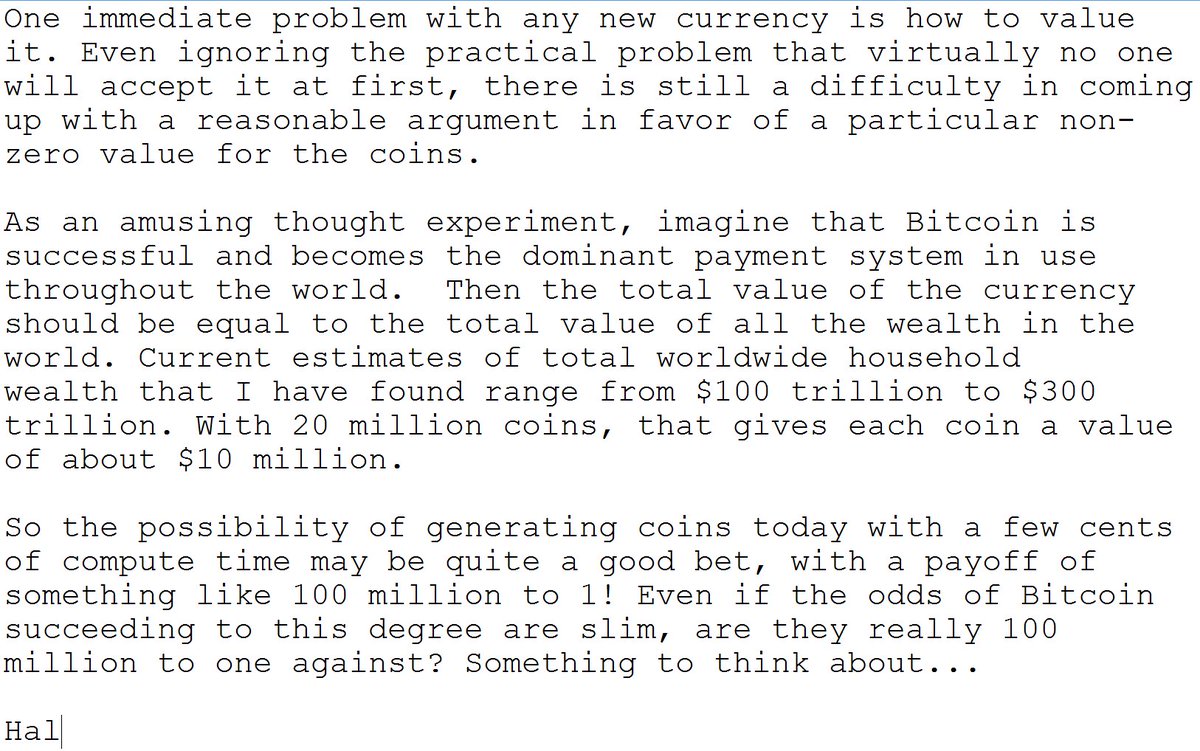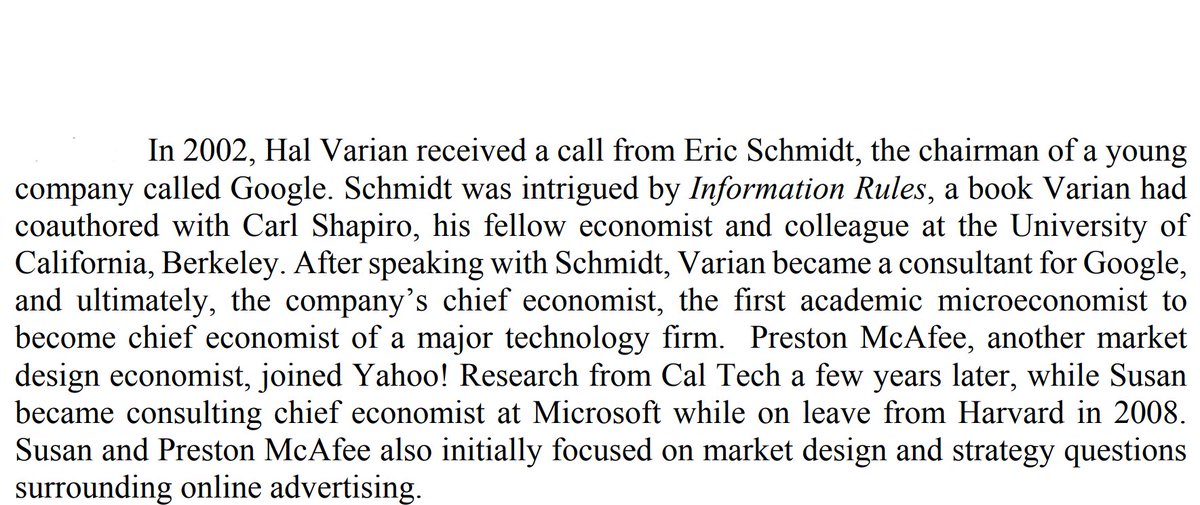Here's #HalFinney's back-of-the-envelope calculation from January 2009. Let's update that and turn it into a collective decision problem. 

I'm starting with a bunch of simplifying assumptions:
1. The "ultimate payoff of world domination" is fixed at $10m per coin.
2. All-or-nothing scenario: world domination or bust. (I actually disagree with that.)
3. No interest rate or NPV accounting.
1. The "ultimate payoff of world domination" is fixed at $10m per coin.
2. All-or-nothing scenario: world domination or bust. (I actually disagree with that.)
3. No interest rate or NPV accounting.
• • •
Missing some Tweet in this thread? You can try to
force a refresh







